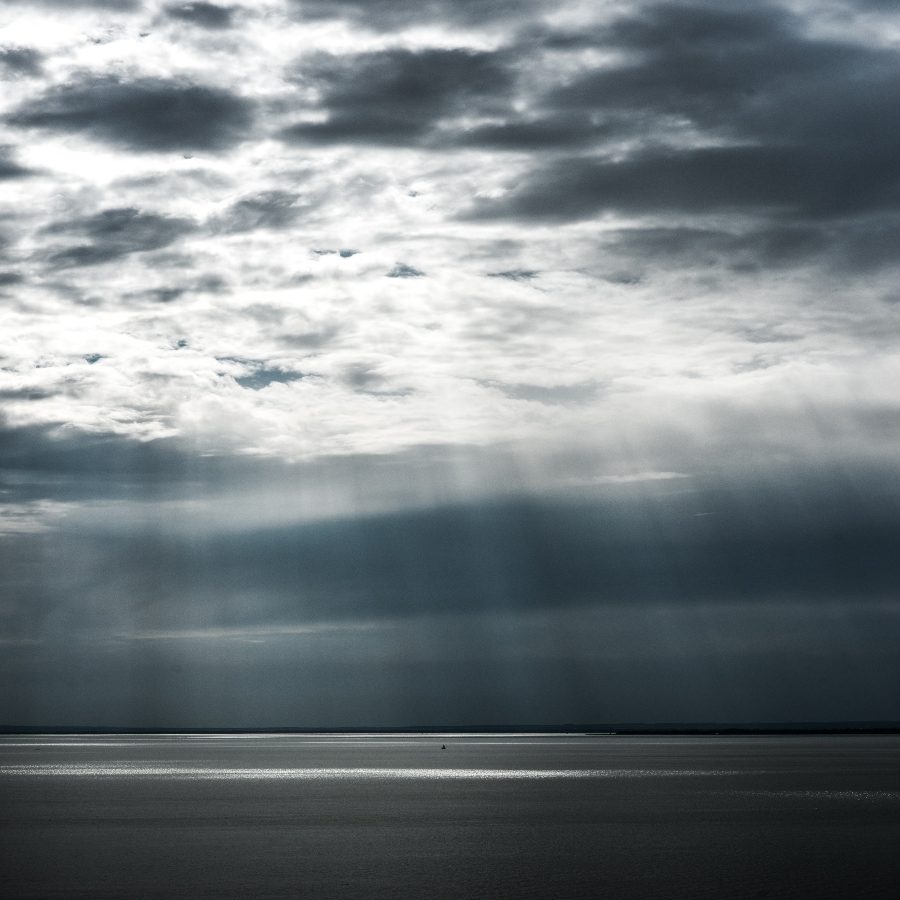
Nothing the Wind Might Sting
1.
The bird flies in through an open window on the first story of the hotel. The bird flies through a patch of dead zinnia stems in a splintery wooden window box where the cat sits sometimes in the nice weather, his shiny fur full of the dust that is disintegrating flower petals and spider legs and dirt. In the summer, he lies there to watch the glimmering translucence of cicada wings and white moths, his green eyes filled with daylight and flower petals and spider legs.
The hotel is busy on the day the bird flies in. It’s early spring, a warm day, and the cat is lying in some pool of sunlight far away; there are guests there and one of them spots the bird and yells something. It’s a starling and it flits around in a panic, a whirl of wings and the tame talons that sit on bird feeders in backyards. But still it is wild, angry, shrieking and frenzied and mottled wings and beady eyes too far away to see.
2.
Fall sinks into winter, flocks of geese into the fanned-out sparrow wings that dart between skeleton branches in the snow, a mess of heartbeats and birdsong. Our days are penciled in planners and guestbooks, colored by memories in organic shapes. We dream of soft ice cream and chlorine blue beneath our atlas of oak trees.
One day, the heater breaks in the hotel, and everyone sits inside piled in coats and blankets until there is nothing left showing, nothing the wind might sting. Except our eyes, filled with anticipation and glass windows. We are afraid to close them.
Today is winter and cold and the sky is so heavy with gray it’s snagged on the naked limbs of elms. Today, we hold our breath, which is a hazy cloud that drifts upwards to join the sky, an organic shape.
3.
The hotel is full of houseplants, six feet tall from the brims of their ceramic pots, explosions of green on trellises and hooks and nails, and butter-yellow sunlight confined in neat rectangles on the hardwood floor, and people and our backpacks and suitcases and orderliness and instincts. We’ve shed our puffy winter coats and patterned wool hats and started to open our windows, just a bit. We weigh ourselves down with suitcases and we hold room keys and pamphlets and exhaustion. We ask about the weather and tourist spots and where to eat dinner. We carry our belongings in tidy stacks inside bags, heavy and self-important.
Everyone stops when the bird flies in. It’s scared at first, fluttering around with sharp wings full of dust. Then it stops and sits on a railing of an upstairs hallway that overlooks the lobby. It sits there in the sun so we can see the blue-green iridescence of its feathers and the scared clutch of pink claws on our polished railings and the point of its beak. We are scared of it and its unpredictability. It is scared of us and ours. So we wait, and in a minute, we watch its wings awaken and some impulse leads it out a different open window where it disappears, unhurt and wild, into an organic shape in a white sky.
4.
In the spring, two barred owls nest in an alley three blocks away from the hotel and stare at us through budding branches and golden hour light and glassy unfazed eyes. We release our breathing, and the world instead holds its breath. We think of underground rivers and owl feathers. We float as organic shapes on the steady syllables of our words, held captive by the enigmatic hopefulness between the lines of tree branches that begin to fill in with letters and viridian greens.
The last time we see the owls is in May. One of them is perched on a telephone wire across the street from the hotel. The hotel manager comes inside, and we hear the echo of the door slamming from within the enclosed right angles of the white walls of our rooms. Outside is the beginning of night and the end of evening and a sliver of yellow moon suspended in an inky dusk.
Months shift from breath and memories and leaves. May is a planner page, pencil lines. The breath is still there, exhaling with moon and stars and birdsong.
“There’s an owl outside, a barred owl,” we hear faintly from behind our closed doors.
So we congregate on the lawn, green grass peppered with blooming clovers, a celestial mirror.
We stand in the middle of an asphalt street, barefoot, staring at the sky and the trees, a collective gaze. It feels like watching the world spin or watching a flower open. There’s tar that fixes cracks in the street and yellow streetlamp light. We can barely make out two owl eyes on the telephone wire. There’s a shroud over the owl, a branch of a tree, and its tendrils. They stretch out in shades of green through a heavy darkness.
We glance back at the hotel building, its neon sign and stacked bricks and mortar square corners. We feel heavy placed here on the asphalt beneath these trees. We watch the world spin. The owl flies away, hidden by the brown blur of its wings. We watch a flock of birds on the darkening blue horizon. We watch the world spin, barefoot on asphalt. We watch the iridescence of starling wings, too far away to see.
Edie Patterson is a 15-year-old writer living in Lawrence, Kansas. In her free time, she is a nature photographer and she plays electric guitar. Her work has previously appeared in Stone Soup and the youth spotlight of Lunch Ticket from the University of Antioch, and she has won regional and national Scholastic Writing Awards.
Submit Your Stories
Always free. Always open. Professional rates.
